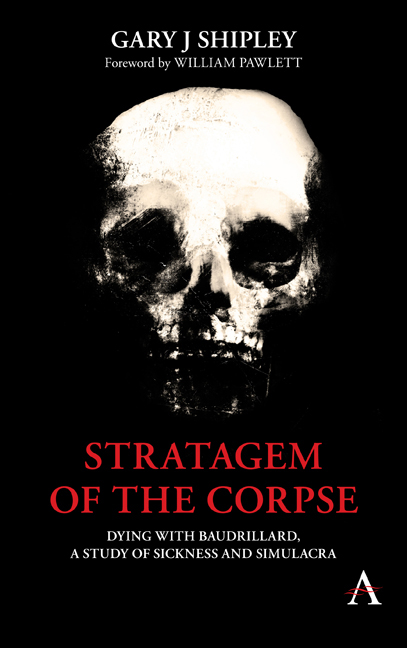Book contents
- Frontmatter
- Dedication
- Contents
- Acknowledgements
- Foreword by Pawletts William
- Introduction
- Chapter 1 On Decay and Other Synthetics
- Chapter 2 Stratagem of the Corpse
- Chapter 3 A Bleak Non-History of History
- Chapter 4 The Hyperactivity of Objects
- Chapter 5 The Unnamable Catastrophe
- Chapter 6 A Cure for Vertigo
- Chapter 7 Chance and the Temporality of Death
- Chapter 8 The Possibility of Nihilism
- Chapter 9 Smell-O-Vision: The Murder Show
- Chapter 10 The Evil Death
- Chapter 11 False Confessions and the Madness of Death: Making Death Speak
- Chapter 12 Black Light: Nigredo and Catastrophe
- Appendix 1 Whiteout: Spatiotemporal Interstices, Necropresence and the Immortality of Now
- Appendix 2 Pure Dreaming: Radicalized and Vermiculated Thought, or Death as an Earworm
- Appendix 3 The Non-Existence of the Scream
- Index
Chapter 7 - Chance and the Temporality of Death
Published online by Cambridge University Press: 20 February 2020
- Frontmatter
- Dedication
- Contents
- Acknowledgements
- Foreword by Pawletts William
- Introduction
- Chapter 1 On Decay and Other Synthetics
- Chapter 2 Stratagem of the Corpse
- Chapter 3 A Bleak Non-History of History
- Chapter 4 The Hyperactivity of Objects
- Chapter 5 The Unnamable Catastrophe
- Chapter 6 A Cure for Vertigo
- Chapter 7 Chance and the Temporality of Death
- Chapter 8 The Possibility of Nihilism
- Chapter 9 Smell-O-Vision: The Murder Show
- Chapter 10 The Evil Death
- Chapter 11 False Confessions and the Madness of Death: Making Death Speak
- Chapter 12 Black Light: Nigredo and Catastrophe
- Appendix 1 Whiteout: Spatiotemporal Interstices, Necropresence and the Immortality of Now
- Appendix 2 Pure Dreaming: Radicalized and Vermiculated Thought, or Death as an Earworm
- Appendix 3 The Non-Existence of the Scream
- Index
Summary
What is the chance that at any moment we might die but the always slightly dubious confirmation, the all too necessary reminder, that we are not there already? There are so many facsimiles of life that there's little hope of identifying their source, or even that they had a source. Everydayness is saturated with these dreams of chance, these daydreams of violence done not only to future lived moments but to the dayness of days themselves: ‘Chance not only tires God, it tires us too.’ Who then does chance still have the facility to surprise? Chance is no longer separable from mundanity, and Baudrillard somewhat sneakily (or else unwittingly) equates the two: ‘Chance is already present in the unpredictability of ordinary life. There is nothing more unpredictable than any moment of daily life.’
But while unpredictability is entrenched in our plodding procession of days, it is nothing if not predictable, and predictable to a fault. For though we know our inductive reasoning has no other grounding but itself, its capacity to repeatedly stifle any opposition is no small testament to its virility. Chance (in the sense that it might bring about the unexpected as opposed to the contingency of whatever happens), in contrast, is almost the embodiment of inertia. Although the fact that chance can bring death also appears to rescue it from this seemingly interminable sleep. That we can die at any moment but don’t is what instils this ordinary life with its ordinariness, that is, with the occluded sham of itself. The mundanity we accept is always only the one that can in any instant be broken. Who could accept it, let alone love it, otherwise? It is for this reason that knowing when you will die is maybe the last remaining taboo, for it strips from us this possibility for the ordinary daily life, regardless of how comfortable or hideous that daily life might be. And what is important to note is how all this talk of chance and the everyday consolidates our precarious placement in the world, or to put it another way, how what is revealed more than anything else is a fundamental human unpreparedness for life.
- Type
- Chapter
- Information
- Stratagem of the CorpseDying with Baudrillard, a Study of Sickness and Simulacra, pp. 91 - 98Publisher: Anthem PressPrint publication year: 2020



